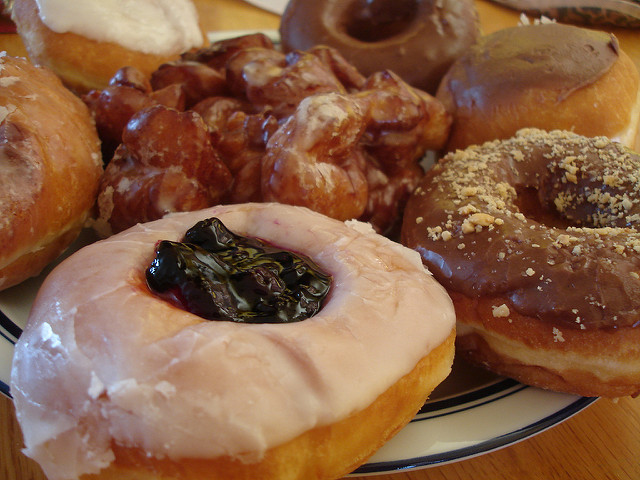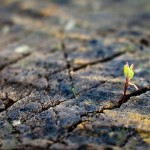
How nutritious are your spiritual eating habits? Do you eat in a healthy way?
Eating Lessons
I learned how to eat first by being fed and then by watching people feed themselves. The lessons my family taught me still affect how I eat today.
The earliest eating lessons I remember taught me meals were inconvenient pauses in life. Eating was uncomfortable because you had to be quiet, sit still, be polite, and try everything. I learned when people said, “Try everything,” it meant it did not taste good. The same was true when they said, “It is good for you.”
Sitting down and eating was something to be avoided whenever possible. Food eaten on the run or out of a box tasted much better than food which was good for you.
I learned, very clearly, eating was something to be done as quickly as possible. You eat as fast as you can so you can go do something more comfortable and more interesting.
As I grew, I learned more lessons which shaped how I ate. Apparently there were rules about eating I did not learn at home. Some people even seemed to enjoy the time they spent eating.
Eating With a Purpose
The reason for eating was obvious. Food was fuel. If we did not eat, we would run out of energy like a car running out of gas. If we did not eat regularly we would end up stuck somewhere by the side of the road. I liked the taste of some foods more than others, but that was almost incidental to eating. We could pick and choose food based on what we liked and fill up our tanks. It all worked the same.
I met people who treated food more like medicine than like fuel. They may have been allergic to certain foods. The saw some foods as more nutritious than others. Some foods affected their systems in more beneficial ways than others.
The foods they saw as better were often ones that did not taste as good.
Creative Eating
Much later in life, much more recently, I learned eating was not what I thought it was. It was a revelation to me that eating was not so much a science as an art.
The focus of eating was not necessarily on getting enough fuel or avoiding bad medicine. Eating could be reflective as well as analytical, and maybe even enjoyable.
I learned about the food chain and where on it we were eating. Cooking became something I enjoyed, rather than time to be reduced before we could eat. The process of cooking opened up and was filled with opportunities for creativity. What had been the risk of disaster waiting to happen became fun, in a challenging way.
Eating became more than consuming as quickly as possible so we could move on to the next thing. Cooking helped me refine my palate, and eating was a time for insights. What was good? What could have been better?
Some nutritious food even tasted good.
Spiritual Life is Like Eating
The ways we understand and appreciate spiritual life are similar to how we experience eating.
How we approach spiritual life is shaped by our earliest memories. Many of us identify spiritual life with being uncomfortable and try to avoid what makes us uncomfortable. We often want to deal with spiritual life as quickly as possible so we can move on to the next thing.
Like learning to eat, spiritual life often feels outside our control.
Our first eating lessons come with being fed. When someone is feeding us, eating is beyond our control. We do not get to decide for ourselves what we will eat or when we will eat it. All we know is we are hungry and we get upset to let everyone else know we want to eat.
Spiritual life apparently has a lot of rules no one has taught us, arbitrary rules which intimidate us. We are a little embarrassed we have not learned these rules and frustrated when they get in our way.
Whenever someone says, “Try it, it is good for you,” we get suspicious.
We try to recognize spiritual life as quickly as we can so nothing embarrassing happens. It is as if we want to move on soon to something more familiar, something under our control.
Mechanics of Spiritual Life
Some of us see spiritual life as fuel, and some see spiritual life as medicine.
We act as though we need a certain amount of spiritual life in the tank so we do not run short. None of us want to get stuck on the side of the spiritual road, unable to continue our journey. Some of us are looking for just the right mix of spiritual practices which will keep us healthy. We may feel allergic to some practices or just know we do not like how they taste.
It is easy to approach spiritual life analytically, looking for the right answer.
Creative Spiritual Life
When we are no longer being fed by someone else, but are feeding ourselves, things begin to change.
As we learn to do our own cooking spiritual life becomes more reflective, and enjoyable. We outgrow the idea spiritual life is something we have to do. It becomes something we get to do. We begin to see that healthy is not synonymous with boring.
We are no longer driven to rush our way through spiritual life so we can check it off our list. Spiritual life becomes something we can savor and enjoy.
We begin to ask about each day, each experience What was good? What could have been better?
Spiritual life draws us in and we are not intimidated. We gain appreciation for the flavors we recognize and become willing to try new combinations. Developing our own new recipes, we welcome the people around us to share the feast.
When was your most recent good, healthy spiritual eating experience?
How often do you fill up on spiritually empty calories?
[Image by @joefoodie]
Greg Richardson is a spiritual life mentor and leadership coach in Southern California. He is a recovering attorney and university professor, and a lay Oblate with New Camaldoli Hermitage near Big Sur, California. Greg’s website is StrategicMonk.com, and his email address is [email protected].












